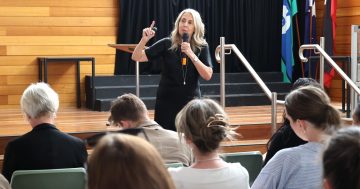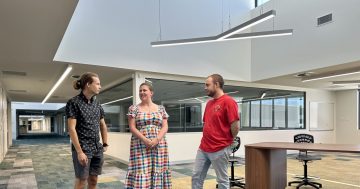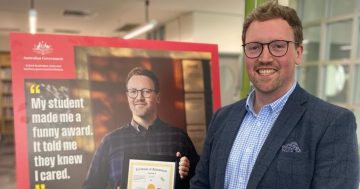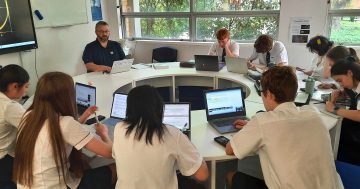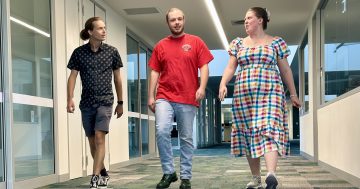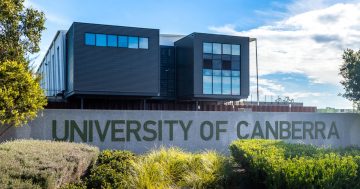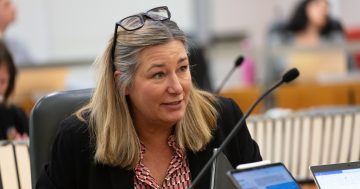
Matthew Millikin has taken home a national teaching award for his pioneering approach to teaching maths. Photo: Supplied.
Canberra teacher Matthew Millikin used to think being good at maths was “baked into your DNA” until he started teaching the subject and won an award for his approach.
The Marist College Canberra teacher was one of 22 Australian teachers and the only ACT-based teacher to be recognised at the Commonwealth Bank Teaching Awards in September.
As one of 10 recipients of the Early Career Teaching Award for those in their first five years in the profession, he received a $10,000 scholarship, including $5,000 for professional development.
The now-second-year teacher was recognised for his after-school intervention program aiming to close skill gaps preventing early secondary students from accessing high school-level maths concepts.
“I really believe that maths is for everyone,” Matthew explains. “I think that, unfortunately, a lot of people come to the conclusion [and] really build into their personality that they’re not good at maths.
“I focus on years 7 and 8, and it’s scary how much that mindset is already there. They’re only just starting high school and potentially close themselves off from experiencing what the subject has to offer.”
Matthew says it’s a mindset he can recall sharing himself before studying the subject at university.
“I really had this idea that I was just okay, and I was just born to be okay,” he remembers.
“I’d hate maths and then the next year I’d love maths because I was doing well. I kind of thought it was baked into your DNA. You have this ability that’s just there and that doesn’t change.”
Matthew says it’s a really tough and slow process to change student mindsets from “I can’t do this” or “I’m not good at this” to a positive mindset of, “I will get this – I just haven’t got it yet”.
But two years later, the successful program he started while he was still a trainee teacher has been extended and expanded from 20 to 60 students and one to three maths teachers.
“It’s a matter of time, effort, reframing and approaching things differently until you get to the point where you’re able to find some success and really celebrate that,” he says.
“I was with them every week so I saw small changes, but it wasn’t until we finished the year and sat back and looked at those kids that we had in this program that we could see the difference.”
The now award-winning maths teacher hasn’t always been on the teaching path. He previously studied science and worked in sports marketing before returning to university to become a teacher. He qualified to teach science and maths but chose the maths pathway. “I’ve been able to bring my expertise from science and neuroscience into the [maths] classroom to talk about how we learn and how memory works,” he says.
“Not only am I able to bring some of that science into the maths classroom, but I really get to have the biggest impact on students because so many of them just didn’t like the subject or really struggled with it.
“That chance to change that is really why I became a teacher; to help people and change their minds and show them how to find joy in these parts of school.”












